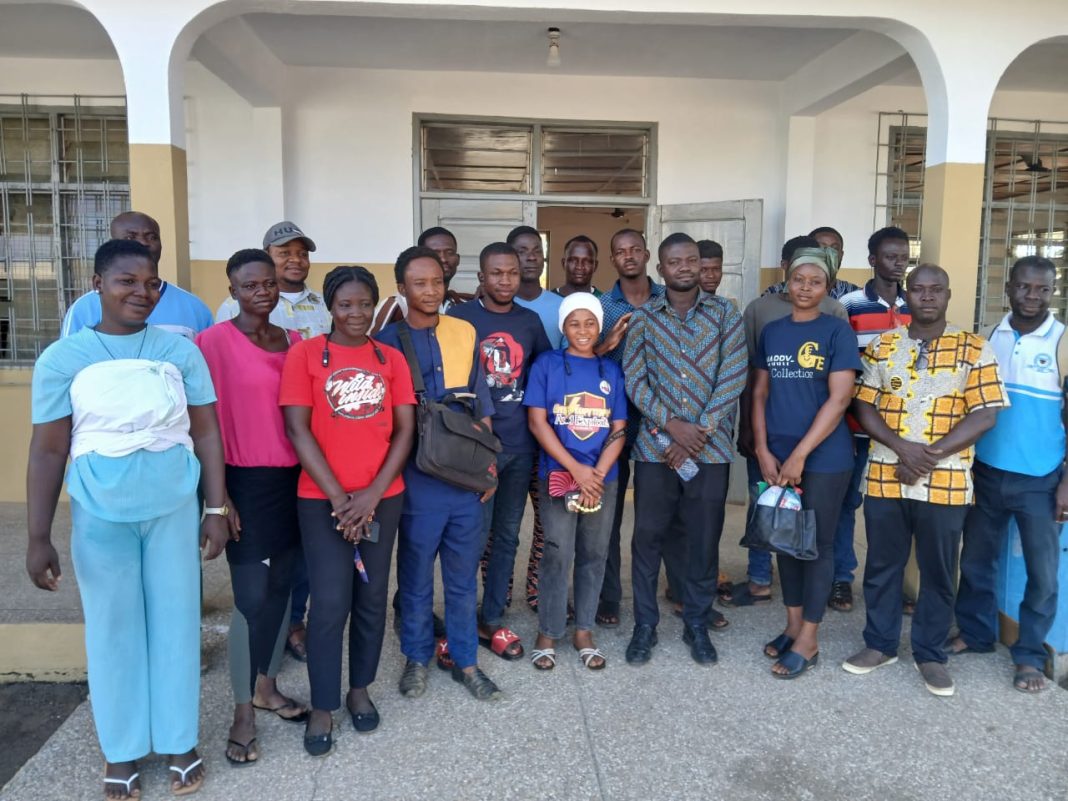Youth volunteers from six communities in the Upper East Region have undergone training on violent extremism, radicalization, and conflict resolution under the Strengthening Resistance to Violent Extremism (STRIVE) project, implemented by AfriKids Ghana with funding from the Global Community Engagement and Resilience Fund (GCERF).
The STRIVE project, jointly implemented by AfriKids Ghana, NORSAAC, and CAPECS, seeks to build community resilience, enhance awareness, and promote social cohesion in northern Ghana amid the rising threat of violent extremism in the sub-region.
The two-day training, held in Bolgatanga, brought together selected volunteers from Sherigu and D-Line in the Bolgatanga Municipality, Dagliga and Gane-Zanlerigu in the Nabdam District, and Biung and Gbane in the Talensi District.
Speaking to journalists after the session, Silas Ayaaba, Project Manager at AfriKids Ghana, said the training was designed to empower participants to become peace ambassadors in their respective communities.
“The STRIVE project is about strengthening resistance to violent extremism. We trained volunteers from six communities on issues of radicalization, violent extremism, and conflict resolution. These volunteers will go back and engage youth, women’s groups, and opinion leaders to raise awareness and promote peace,” he explained.
He said the trained volunteers will cascade the knowledge gained to community groups, particularly the youth and women’s associations, through education sessions and peace dialogues. Each community, he added, has developed an action plan to guide their outreach activities, which AfriKids will monitor and support.
“We are satisfied with the level of participation and understanding shown by the trainees. They demonstrated deep insight into the subject, and we believe they are ready to step down this knowledge to their communities,” Mr. Ayaaba said.
The Upper East Regional Peace Council collaborated with AfriKids Ghana as facilitators for the training. Damien Asobayire, the Regional Executive Secretary of the Peace Council, said the session covered practical topics such as conflict mapping, mediation, negotiation, and early warning signals of violent extremism.“We took them through how to identify and analyze conflicts using tools like the tree, the onion, and the iceberg models,” Mr. Asobayire noted. “They also learned to detect early warning signs—such as unresolved conflicts, the presence of strange visitors, or suspicious offers of support—and how to report these concerns to the appropriate authorities.”
He emphasized that unresolved local disputes often serve as entry points for violent extremists, hence the need for communities to build dialogue and trust.
David Angaamba, Principal Programme Manager at the Peace Council, said the training was timely given the region’s proximity to Burkina Faso and Togo, both of which have suffered extremist attacks.
“We share borders with countries under attack, so sensitizing young people is crucial. Extremists often target the youth through deception, false promises of jobs, or religious manipulation,” he cautioned.
Mr. Angaamba said unemployment, marginalization, and unresolved conflicts remain major drivers of radicalization, adding that many extremists now use social media to recruit followers.
“Recruitment today happens more online than face-to-face. That’s why we are encouraging youth to use social media responsibly and help counter extremist narratives,” he added.
The STRIVE project, which runs over three years, aims to strengthen the capacity of border and mining communities to detect and prevent violent extremism while promoting peaceful coexistence, tolerance, and community resilience.
Source: A1Radioonline.com|101.1Mhz|Joshua Asaah|Bolgatanga


